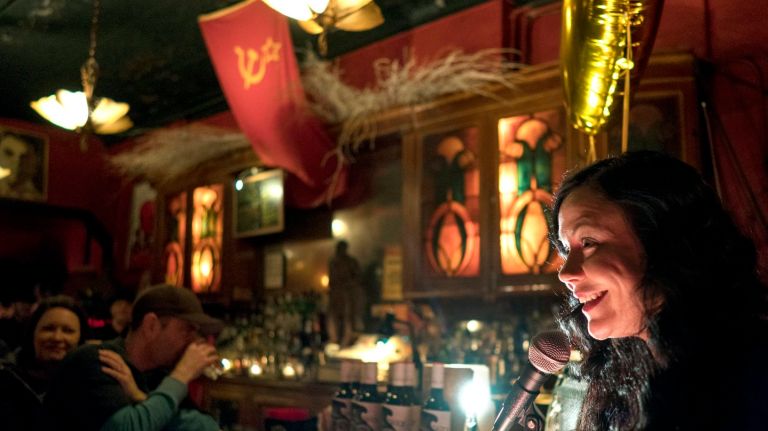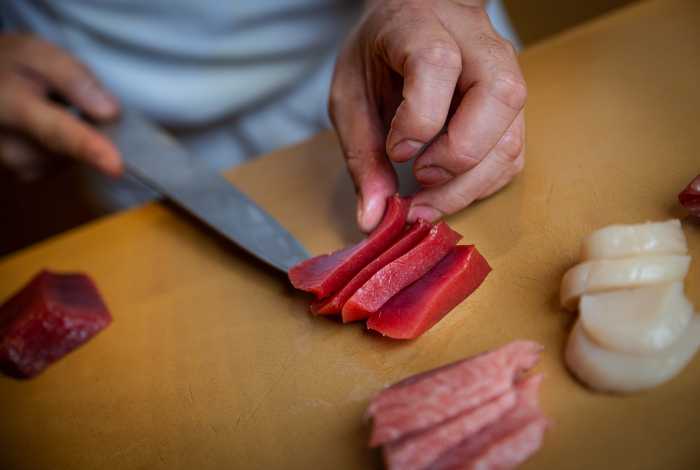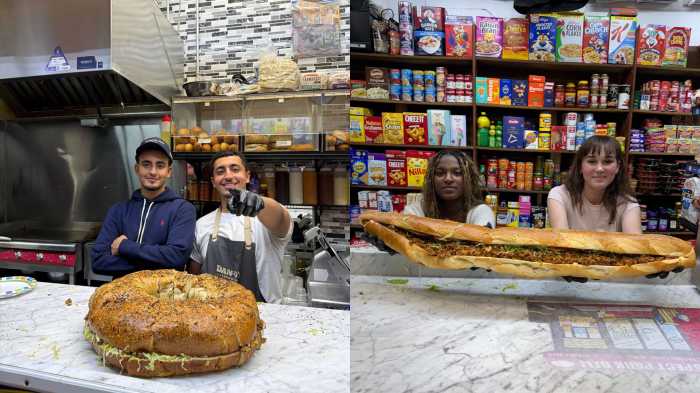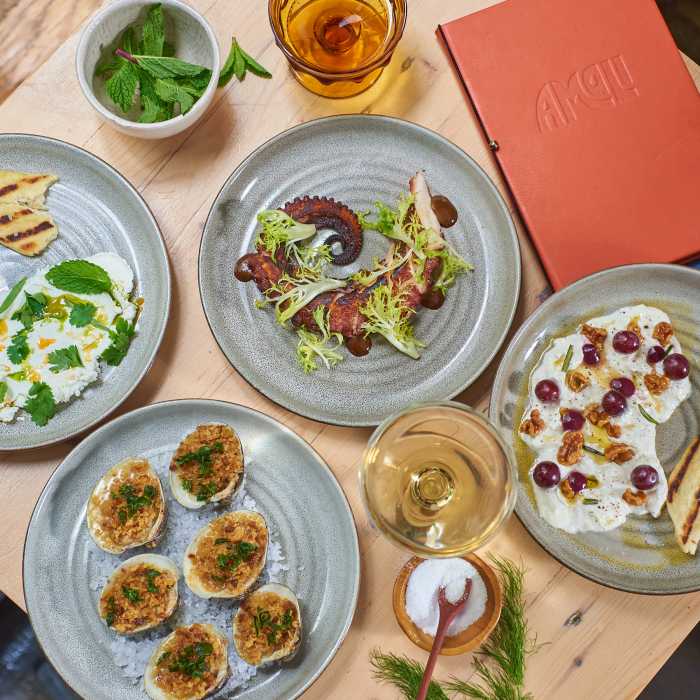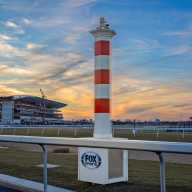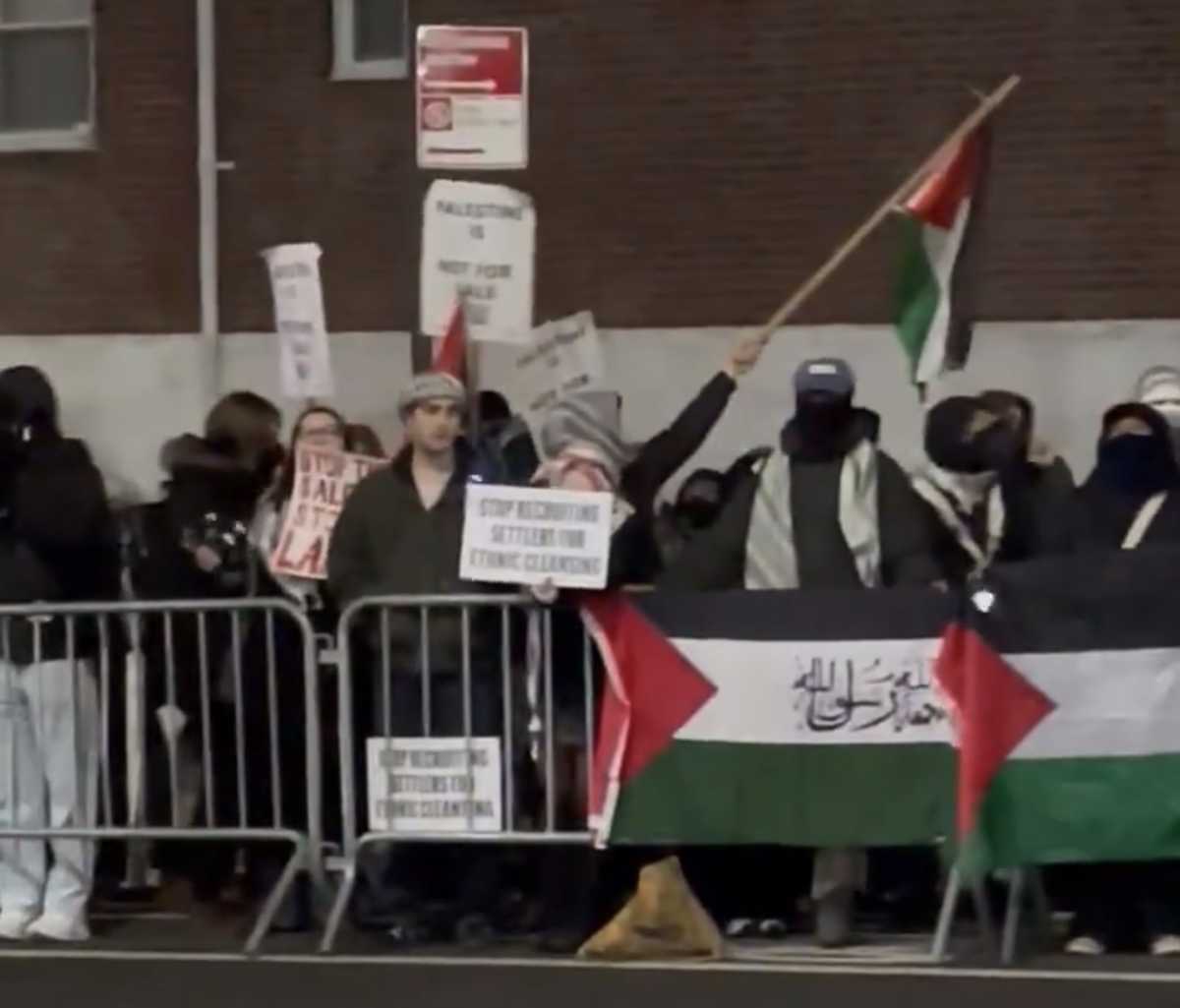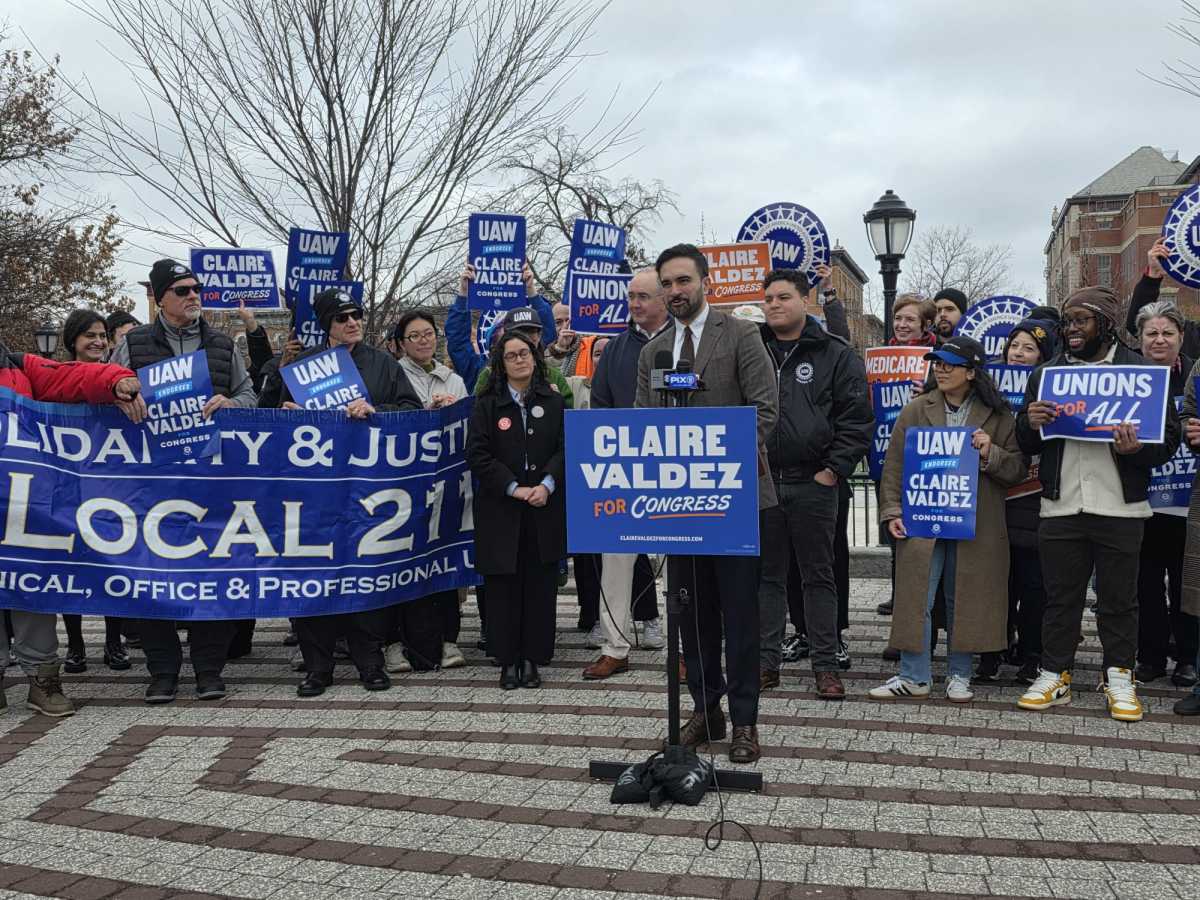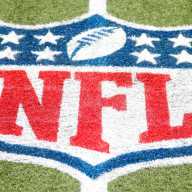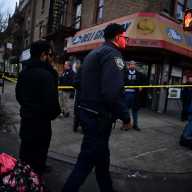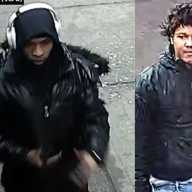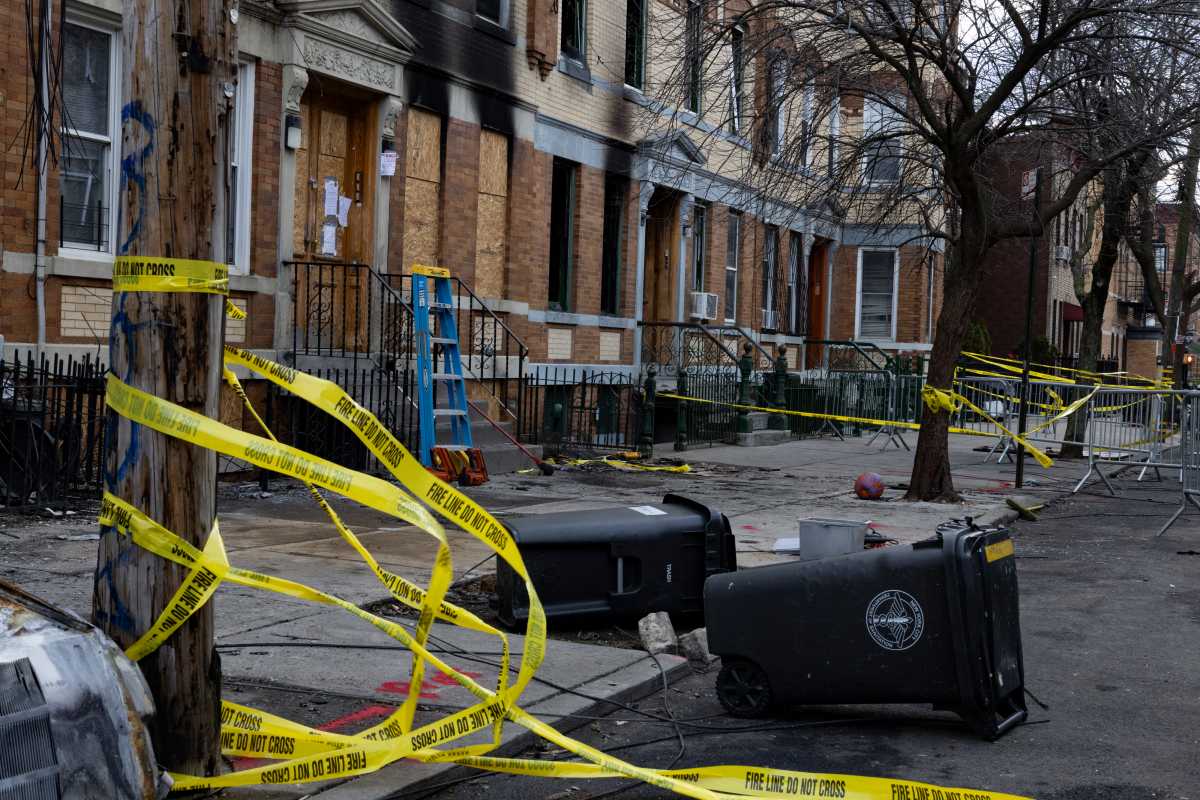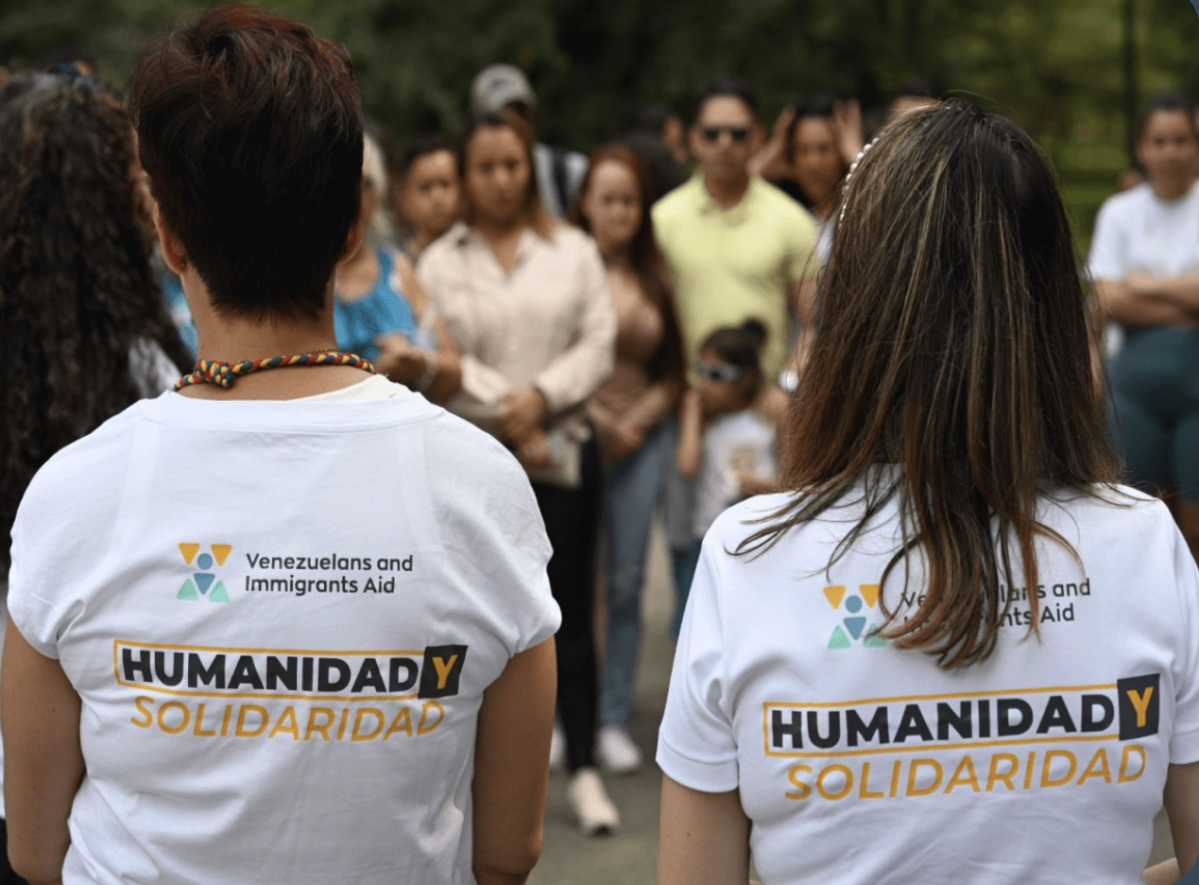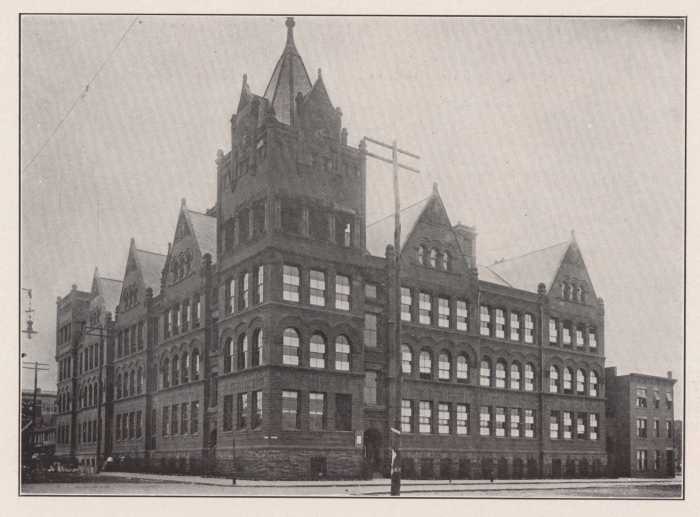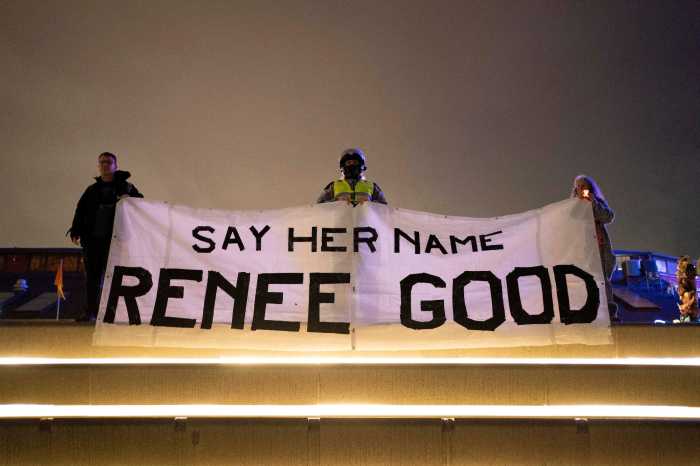
A faint red hue illuminates the door frame of one of the East Village’s last literary hangouts, the KGB Bar on East Fourth Street.
Perhaps it’s fitting that this neon glow almost seems like a secret invitation to enter the space, located in a building that owner Denis Woychuk calls “Culture House,” a space retaining its identity as a literary bar when many other cultural institutions in the neighborhood have come and gone.
“We do a lot of culture here,” Woychuk says.
What exists today began when Woychuk opened Kraine Gallery in the building in 1983, when he was in night law school at Fordham and teaching at Pratt. Ten years later, Woychuk opened the bar.
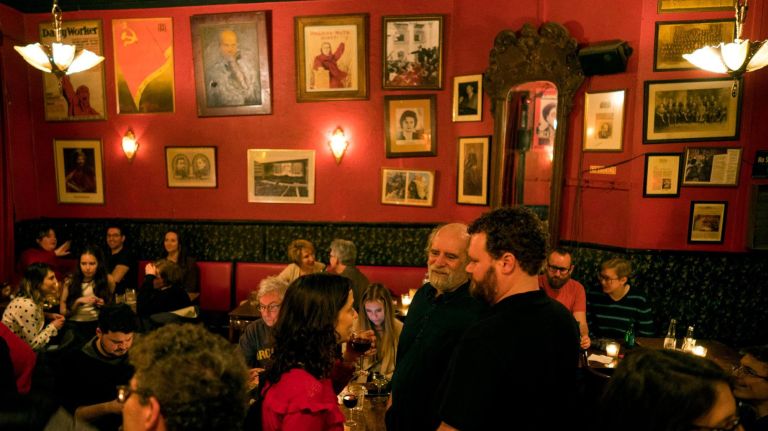
“What can I call a bar that has no sign? I had no sign because I wanted it to be true to its speak-easy roots,” Woychuk says.
The stained glass behind the bar, he says, is original ornamentation from the space’s earliest days, circa the 1920s.
The theme of the Soviet Union and its famed security agency has served the bar well for decades, but there’s a double meaning behind the name.
“Spy bar was taken,” Woychuk says. “ . . . So, I realized by pure coincidence having a corporation called the Kraine Gallery, like Ukraine with the U lopped off . . . so, all right, its Kraine Gallery Bar, right above the Kraine Gallery.”
Over the years, the bar has hosted some of the world’s most famous writers, according to Woychuk, everyone from Jonathan Franzen to Joyce Carol Oates and Lemony Snicket (Daniel Handler).
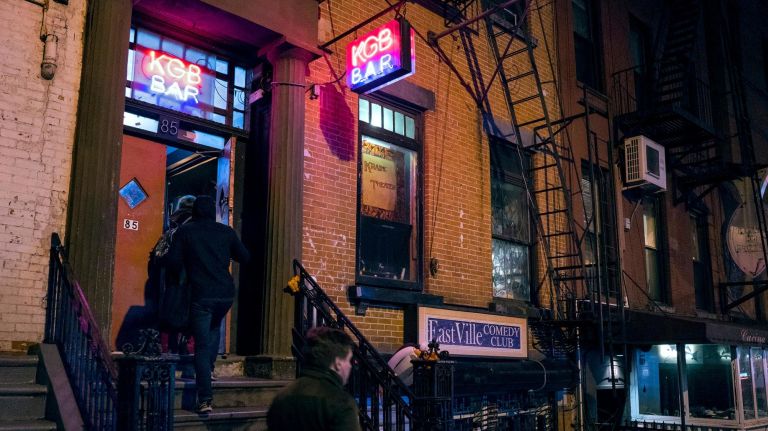
One night last month, a storytelling show called “Sideshow Goshko” celebrated its nine year anniversary as a monthly staple of the KGB.
Host and creator Leslie Goshko, a performer and musician, found out about KGB Bar after her husband Kyle discovered the literary venue while searching for a place to hold a poetry reading. Goshko says she hit it off with Woychuk right away, perhaps in part due to their shared Ukrainian roots.
“It really is like a family, what I’ve developed with the bar,” she says. “It’s not like walking into a corporate place — it’s not just all business. I can book who I want and run a free show. He (Denis) allows me to curate who I want on the lineup; I always try to curate the best-quality show that I can, even though it’s a free show.
“Denis truly does care about the art that goes on,” she adds. “It’s a rarity to have a show that goes on for nine or 10 years.”
Woychuk makes it clear that he’s not in the literary business for the money.
“Twenty years ago, we had eight pages in The New York Times Magazine about the literary scene here, and suddenly every bar was opening a literary room,” he says. “What they didn’t understand is it doesn’t make a lot of money; in fact it makes a little tiny bit of money. You have to do it because you realize writers are lonely. That’s why I did it.”
But as important as readings and the arts are to the KGB, the artwork that adorns the walls reflects icons and images of the former Soviet Union, where the KGB spy agency hid in the shadows.
“It’s very ironic,” says Woychuk, “because people now are trying to align me with [President Donald] Trump, which I find vastly amusing. And it’s like, no, I don’t give interviews to people who are trying to do that.”
Dozens of World War II- and Cold War-era art pieces, photographs and mementos cover the walls in the bar, from early propaganda posters to a photograph of famous Soviet cosmonaut Valentina Vladimirovna Tereshkova. A portrait of Misha, the iconic symbol of the 1980 Moscow Olympics (boycotted by the USA), can be found as well.
“It’s a slice of history; it’s mostly anti-Nazi propaganda, things I’ve found and in a speak-easy setting,” Woychuk says. “It’s one piece of history laid over another piece of history. We as a country have been obsessed with Russia forever.”
It is the sort of décor that one once expected to find in a neighborhood renowned for its countercultural traditions, where you’re now more likely to find a pharmacy or a bank than a haven for artists. And it’s holding on, even as that spirit has been all-but scrubbed out over recent years that have seen the closures of CBGB, Kim’s Video, Mars Bar, St. Mark’s Bookshop and so many others.
“We’re in the East Village, the former hotbed of radicalism. That’s what’s really changed around here,” Woychuk says. “We’ve kind of stayed the same, but around us, everything’s changed.”



